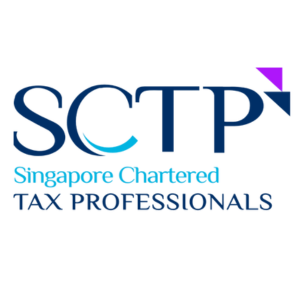
GST Audit Services
What does GST mean in Singapore? Goods and Services Tax (GST) was introduced in Singapore in April 1994. Over the decades, the regulations have been constantly updated and changed.
Our team of experienced specialist are here to help you stay updated with the changes to avoid the risk of your company paying any unnecessary costly penalty fees. We provide top-notch audit services in Singapore, talk to us today and schedule an appointment with us.
We also assist clients with Assisted Self-Help Kit (ASK) audit conducted by IRAS. Audits are carried out in the following scenarios:
GST is a tax that is self-assessed. While most taxpayers are generally compliant, the IRAS performs frequent audits to encourage voluntary compliance and guarantee that everyone pays their fair share of taxes;
Based on past filings which indicate regular filing of GST F7 Error Filing;
When a company applies for or renewal of Major Exporter Scheme.
What Is A GST Audit?
Since the audit process is to confirm if tax has been appropriately taken into account in your day-to-day transactions in business and that the details are correctly disclosed and reflected upon in your tax returns, the IRAS officers would have to check if your goods are listed accurately, and if your fee was accounted for and charged accurately. The input fee would also have to be claimed in an accurate manner, and the company's reported values for suppliers, purchases, and taxes would have to be consistent and accurate.
Letters, emails, and even faxes can be used to conduct an audit. Audit officers may also visit the premises to request documents or to meet key personnel in your company’s infrastructure.
The officer will have to seek information from your customers, vendors, and banks to verify if the operational transactions reported by you are genuine and accurate.
What Should You Expect From a GST Audit?
With CorpPass, each Singapore firm can access their own tax records and view their statement of accounts on myTax.iras.gov.sg.
There is also an Assisted Self-Test Kit (ASK) to assist GST-registered businesses in self-assessing their compliance with the requirements.
Additionally, the tariff compliance rating is a score assigned by the government to businesses that reflects how compliant businesses are with the liability department. It can provide some insight for outsiders to understand the financial health and punctuality of the company.
This score is calculated based on various factors, such as the filing of monthly and annual returns frequency and punctuality, furnishing details of input credits used, fees paid and unpaid, etc. Using an algorithm to rank companies based on their compliance rating, the IRAS randomly conducts an Audit on companies.
GST Reporting
According to the IRAS website, large businesses take up 2% of the taxpayer population. However, they contribute to more than half of the total tax payable volume.
Large corporations frequently deal with complicated business agreements with high-value transactions. Due to the sheer volume of transactions, it is common for businesses to unknowingly commit tariff errors, especially when their systems fail to accurately record the number of business transactions for reporting.
Increasingly, businesses are outsourcing their finance operations to accounting and managerial firms. With someone specialising in tax advisory and corporate secretarial handling their tax filings, businesses are less vulnerable to making tax errors.
Source: IRAS
GST Errors
Almost 75% of businesses have made errors in their years of operation, according to IRAS.
The IRAS have recovered a total of $73.19 million of tax and penalties to date. The average case recovery is believed to be $308,000.
There are many ways and aspects of errors that large corporations are prone to, due to the sheer frequency and volume of their transactions.
Businesses might commit fundamental errors, with the most common examples being supply misclassification and claiming blocked input taxes.
Incorrect fee treatment may have been applied for non-trade receipts, skewing the report numbers.
Another common occurrence for big companies involves the omission of sales on receipts. This is especially prudent when the sales are captured outside common invoicing practices, such as small transactions or one-time-off cash payments.
Newer businesses may also may the technical error of misapplying tariff law for unapplicable transactions or unknowingly failing to obey tariff-specific provisions such as input tax apportionment and deeming of gift of goods.
Source: IRAS
Post GST Audit
Depending on the progress of the GST audit, an audit may be delayed to 12 months. There are many factors affecting the length of an audit, ranging from the type and difficulty of your industry and business to the cooperation provided by your company and the authorities.
The company will receive the audit's findings in writing after the audit has concluded. Once the letter has been received, companies have 30 days to objections to audit results and requested changes, should they feel the need to.
The written objection requires details and must have reasons for disagreement. IRAS stipulates the following reasons as sufficient grounds of objection:
Registration/De-registration
Assessment
Possession of a security deposit is required.
Make a refund claim
Allowable input tax
If you fail to agree with the conclusion of the objection, you have 30 days from the date of the decision to file an appeal with the GST Board.
At Morrison Management, we help our clients with the objection and appeal process, should they decide that they want to take such actions due to any form of disputes. Our extensive experience in this industry allows us to help our clients breeze through audits with no additional stress or distractions. We ensure you that you are prepared well for your GST audits and are perfectly positioned to negotiate an appropriate settlement (if required).
What is a Missing Trader Fraud Arrangement?
Some businesses may engage in activities that are organised with the intention to defraud GST. Such arrangements are commonly termed ‘Missing Trader Fraud’.
Under the ‘Missing Trader Fraud Arrangement’, a supply chain would be formed by a set of businesses that supplied the same items. To avoid the tariff charges during the final sale of goods, the goods will eventually be shipped to a foreign customer.
A seller in the higher spectrum of the supply chain would impose GST on the goods belonging to businesses below its tier, and instead of paying GST, the initial seller would fail to account for the GST it has collected, in the seller’s GST return filings. This scheme is termed the ‘missing trader fraud’ as the seller disappears along with the tariff, in this fraudulent supply chain set-up.
What are the consequences of being involved in Missing Trader Fraud?
While the allure of evading GST charges may be tempting, it is important to note that the fraud is not only unethical, but bears a severe punishment, and businesses should not consider being part of it.
Being involved in a Missing Trader Fraud is a serious offence. As the transactions are carried under in company’s name, the directors and company are left to face the authorities.
Anyone who intends to evade or help another to evade GST will face a penalty of up to three times the amount of tax undercharged, a fine of up to $10,000, and/or a sentence of up to seven years in jail.
The Knowledge Principle
There is a new principle being put into use to counter such fraudulent behaviours and ensure that businesses across the supply chain are equipped with the necessary precaution against GST fraud.
Starting from the 1st of January 2021, under the Knowledge principle, companies will not be entitled to any input tax on any purchase that the company knows or has known to be part of fraudulent Missing Trader arrangements.
Even if you meet all of the requirements for claiming input tax, your claim for input tax will be rejected. For more in-depth clarification on transactions as well as the information above, you can refer to the source at the IRAS website.
How to Avoid a Missing Trader Fraud Arrangement
To safeguard your company and yourself, it is important to never allow any other individuals, even your staff, to use your identity. This includes the knowledge of your personal information, such as your IC number or SingPass password.
In terms of business dealings, companies should also assess the risk indicators of a business transaction based on their own due diligence. Companies are also reminded to be wary of a deal if the deal sounds too good to be true.
About The Company
Our Mission
At Morrison Management, our mission is to empower businesses by delivering comprehensive consulting services that ensure growth, efficiency, and compliance. Through innovative solutions, expert advice, and personalised services, we commit to helping our clients achieve their business and strategic goals.
Morrison Management is a top-tier business consulting firm based in Singapore, with operational support teams in the Philippines and India.
Established in 1987 under the name Raffles Corporate Advisory Services, the company has built a strong reputation as a trusted corporate services provider by working closely with associates in Southeast Asia. In 2018, the firm was rebranded as Morrison Management to reflect its expanded capabilities and forward-looking approach.
Today, we continue to empower businesses with expert advisory, strategic planning, and customised solutions to thrive in today’s fast-changing business environment.
At Morrison Management, we bring together a team of highly experienced professionals with deep expertise in Corporate Secretarial, Bookkeeping & Financial Reporting, Forensic & Special Accounting, Tax & GST Advisory, Business Restructuring & Recovery, Corporate Finance, Fundraising Support, Government Grant (EDG) Advisory, Strategic Planning, Liquidation & Insolvency Management, Financial Management Consulting, Board Advisory, and Litigation Support.
Our consultants are committed to helping all companies in Singapore and across the region overcome complex business challenges and achieve sustainable growth. Each member of our team is committed to delivering excellence and building long-term relationships with our clients. We work closely with our clients and adopt a collaborative approach to understand their needs and challenges, thereby allowing us to tailor corporate solutions that drive results.
Why Choose Us?
Following are the reasons why you should choose Morrison Consultants for your corporate needs.
● Proven Track Record: We have more than a decade of corporate experience and successful consulting engagements with businesses of all sizes.
● Comprehensive Services: We provide a full spectrum of consulting services under one roof.
● Experienced Professionals: Our team comprises industry experts and qualified professionals dedicated to your success.
● Client-Centric Approach: We offer personalised services tailored to meet your unique needs.
● Legal Compliance: We strive to ensure that all your processes are compliant with the regulations and standards.
Our Services
Our Accolades
Frequently Asked Questions (FAQs) About GST Audit in Singapore
-
Any business that submits an inaccurate GST return is subject to a penalty.
For submitting incorrect returns, businesses may be fined up to 200 % of the tax undercharged or over-claimed. A fine and a prison sentence are also possible penalties for the individuals involved.
It's a good idea to use an external company to assist you with the task to speed up the procedure, eliminate any surprises, and reduce any unnecessary costs.
Limited personnel, maternity leave, or yearly leave are insufficient reasons to obtain deadline extensions.
-
Inappropriate listing of standard-rated goods as zero-rated goods.
Failed to report GST on non-trade revenue.
Failed to report GST while selling an asset.
Expenses being rebilled multiple times.
Making a claim for input tax on banned expenses.
Fringe benefits and deemed supplies.
Exempted supplies are not subject to input tax adjustments.
Incomplete or incorrectly applied formulas.
Accounting system problems.
Failure to note the revised policy/legislative changes.
-
According to the IRAS, the majority of errors are due to inadequate controls in the processes.
This may include limited and insufficient checks on liability classification of sales and purchases or the lack of resources to properly train and update their staff on rules and updates.
Insufficient supervision of tax documentary requirements can be costly. Avoid unnecessary fines by hiring a professional firm Morrison Management.
-
Taxpayers have to cooperate with IRAS by:
Providing full access to facilities, data, and documents;
Have an available space for auditors to execute an inspection of books and records;
Letting IRAS personnel conduct interviews with relevant staff;
Allow copies of records and documents;
Respond promptly and accurately to requests for information;
Be transparent and honest. Abnormalities and errors should be disclosed as soon as possible.
-
Once you have received the first notice of audit, it is important for you to get the supporting records and documentation updated and compiled.
This would require plenty of crosschecking and compiling to make sure that there are no gaps in accounting or missing documentation. Any form of missing or erroneous documentation can be seen as an act of negligence and might put the company under a stricter set of eyes.
Preparing for an audit is a tiring and stressful process. Additionally, it will also take your time and attention away from your company’s operations. It is advisable that the company engage tax professionals to help them quickly review any gaps and prepare the company for audit interviews.
Experienced tax experts will be able to quickly identify the notable transactions or areas of concern that IRAS personnel will center their questioning around. They can help guide you on procedures to adopt and how to formally answer the queries of the IRAS tax investigators.
At Morrison Management, we help our clients go through a quick overview and checklist of what should be included in their books and financial report for the audit. We compile the necessary financial statements required and vet the documents to get rid of any problematic errors.

















